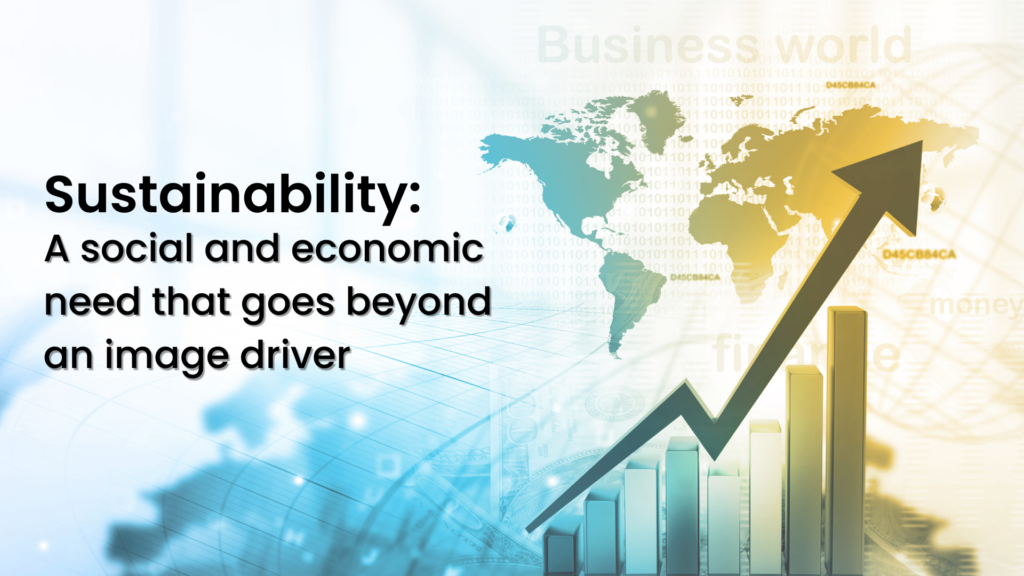The last eight years have been the warmest on record, according to a recent assessment by the World Meteorological Organization (WMO). Since 1993, the rate of sea level rise has doubled, with the increase in the last two and a half years making up 10% of the total rise during the previous 30 years. The significance of sustainability is also evolving due to rising sociopolitical pressure and rising socioeconomic disparity.

Business executives are aware of the urgency on both sides. Investor knowledge of issues including climate change, pollution, and inequality has increased, and customer demand has surged by a ratio of 7x between 2021 and 2022. While governments are adopting new requirements, employees are making career decisions based on their employer’s sustainability pledges and track record. Therefore, sustainability must become the corporate strategy of every organisation and its North Star.
No business can exist without being sustainable, and when it comes to the environment, understanding the relationship between digital technology and climate change is crucial for finding solutions to challenges facing people. Especially in high-emission industries like energy, materials, and mobility, promoting digital solutions for energy efficiency, scope 3 transparency, circularity, and carbon data sharing in collaborative networks led by industry leaders and climate coalitions will serve as a potent model for future sustainable business strategy.
In the end, networks and collaboration are at the core of the solutions to our world’s problems. Businesses can monitor environmental, social, and corporate governance (ESG) across their whole value chains in a business network, in addition to within their own organisation. They gather verifiable information based on actuals rather than averages. They can submit reports in accordance with a rapidly developing set of ESG requirements, but more crucially, they can go above and beyond the call of duty by integrating sustainability into all of their operational procedures and value chains. This gives businesses the ability to develop equitable and secure workplaces, cut waste, and decarbonize the entire value chain (scope 1-3), laying the groundwork for the circular economy. Companies are ultimately only as resilient and sustainable as their ecosystems.
Technology is essential in bringing people together in a world that is becoming more and more fractured and where global concerns pose a threat to split us apart.